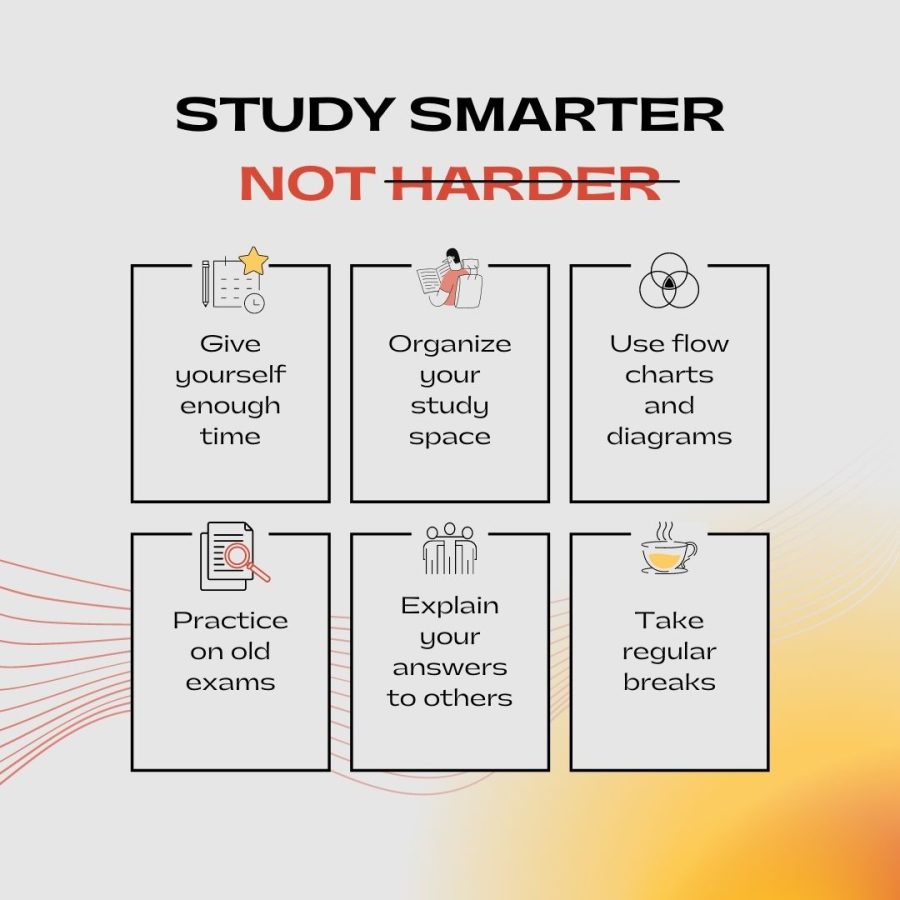Start studying for finals early!
It’s that time of year again Hilltoppers — finals week is right around the corner! While it may be tempting to procrastinate studying for your finals, it’s best to start as early as you can for the best outcome.
I will be the first to admit that I procrastinate sometimes! Not only does it cause more stress, but it also has a direct effect on my grades. According to The College Post, beginning to study for your finals at the earliest one month in advance is ideal. This way you won’t have to work double time to squeeze a bunch of information into your head.
Many students, like myself at times, pull all-nighters trying to study, but this method is both ineffective and stressful. Research by the department of psychology at the University of California showed that breaking up study sessions into smaller study sessions over time enhances performance and retention of information.
After spending three years as a college student, I have learned to start studying for my finals earlier. As a result, my grades and stress levels have both improved. Here are my top three tips to enhance your studying habits and to hopefully yield better final grades for you!
1. Prepare your study area
For me, one of the most important aspects of getting a good study session in is preparing the area I am in! The first thing I do to “set the mood” is turn my phone on silent and place it out of sight. My phone is my biggest distraction, so not having it visible is helpful to stay focused on studying. Next, I place everything I am going to need on my desk in my room. This includes pens, highlighters, paper and my laptop. Having everything right where I need it eliminates distractions as well. Finally, I make sure my area is prepped for studying by having a glass of water, a cup of coffee and a small snack close by.
2. Create a Game Plan
As stated earlier, it is most effective to break up your study sessions into shorter, focused sessions, and take regular breaks. Creating a study schedule helps maintain organization for your classes and your studies. For me, I like to outline how I will review my subjects for studying by the days and time. I also add in breaks and test exams. For example, Monday, 11 a.m. – 12 p.m.: Review chapters 1-2 communications textbook. From 12 p.m. – 12:45 p.m., take a break. Between 1 p.m. – 2 p.m., reread communication notes. After you repeat this process a couple times, you can plan for a test exam to see how much knowledge you retained.
3. Categorize Study Sessions
It is important to organize your study sessions in order of importance. One of the biggest mistakes I would make was not ordering my study sessions. Instead of studying what was most difficult for me to grasp, I would study the lessons that were easier for me to understand. It is best to prioritize the lessons by what you find the most difficult. For example, I struggle with math, and writing is something that comes easier to me. So, it would be best to prioritize my math studies first and review my writing lessons later. I think it is also important to note that there is no need to extend the same amount of study time to each subject. For me, I take more time studying the subjects I do not understand and take less time on the subjects I do understand.
Finals can be stressful as is. Ease your mind and increase your grades by starting your study sessions for classes earlier. By preparing your study area, creating a game plan and categorizing your study sessions by order of importance, you are setting yourself up for success. Good luck Hilltoppers and have a great summer break!
Annalise Murphy, of New Cumberland, W. Va., is a junior at West Liberty University and double majors in journalism and criminal justice. Murphy has volunteered...







